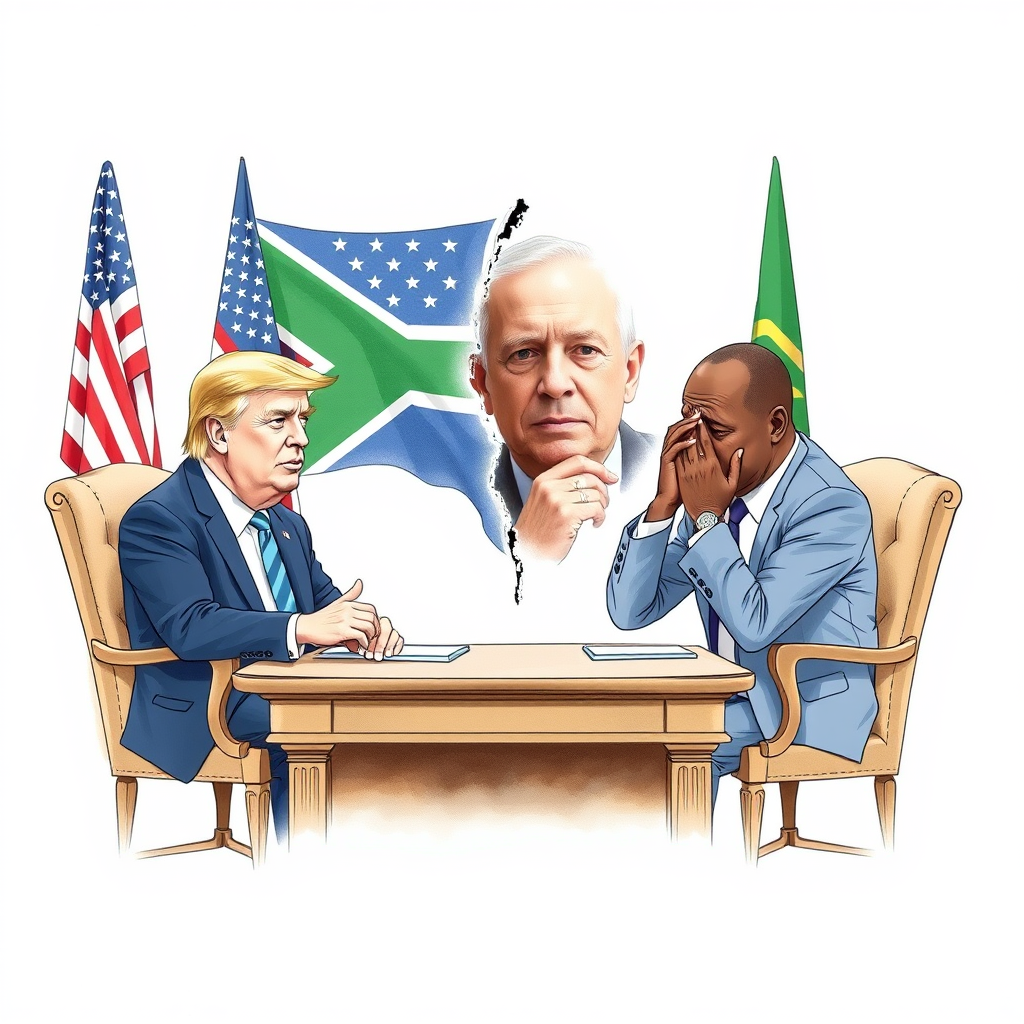Trump’s Apartheid Claim Met With Firm Rejection

During a tense Oval Office meeting, South African President Cyril Ramaphosa repeatedly and visibly refuted former U.S. President Donald Trump’s unsubstantiated claims of a “white genocide” and “reverse apartheid” occurring in South Africa. Trump consistently asserted that “thousands” of white South Africans were seeking refuge in the United States due to fear for their lives, and that land confiscation was leading to the murder of white farmers with impunity.
Ramaphosa attempted to correct the record, stating that far more Black South Africans are victims of violence. However, Trump repeatedly interrupted and dismissed these points, returning to his narrative of a crisis affecting white farmers. He claimed land seizures were occurring and linked them directly to farmer deaths, alleging a lack of consequences for perpetrators. Ramaphosa’s attempts to interject were largely overridden, consisting primarily of repeated denials – “No, no, no, no, no!” – before being spoken over.
The exchange, captured on video, showed Ramaphosa visibly uncomfortable, at one point running a hand over his face as Trump continued to press his claims. Trump characterized the situation as “the opposite of Apartheid,” suggesting a media bias prevented the story from receiving adequate coverage, contrasting it with what he described as extensive reporting on Apartheid itself. He referenced images of crosses commemorating victims, claiming each represented a deceased individual, and asserted that this level of violence would be a major story if the victims were of a different race.
The incident highlights a significant disconnect in perspectives and a troubling insistence on propagating misinformation, even in the face of direct contradiction from a head of state. While Trump framed his concerns as a matter of fairness and media accountability, the evidence presented – or rather, the lack thereof – suggests a deliberate misrepresentation of the situation in South Africa, fueled by unsubstantiated claims and a disregard for factual accuracy. The exchange underscores the dangers of allowing unsubstantiated narratives to dominate public discourse, particularly when they risk exacerbating racial tensions and distorting complex realities.